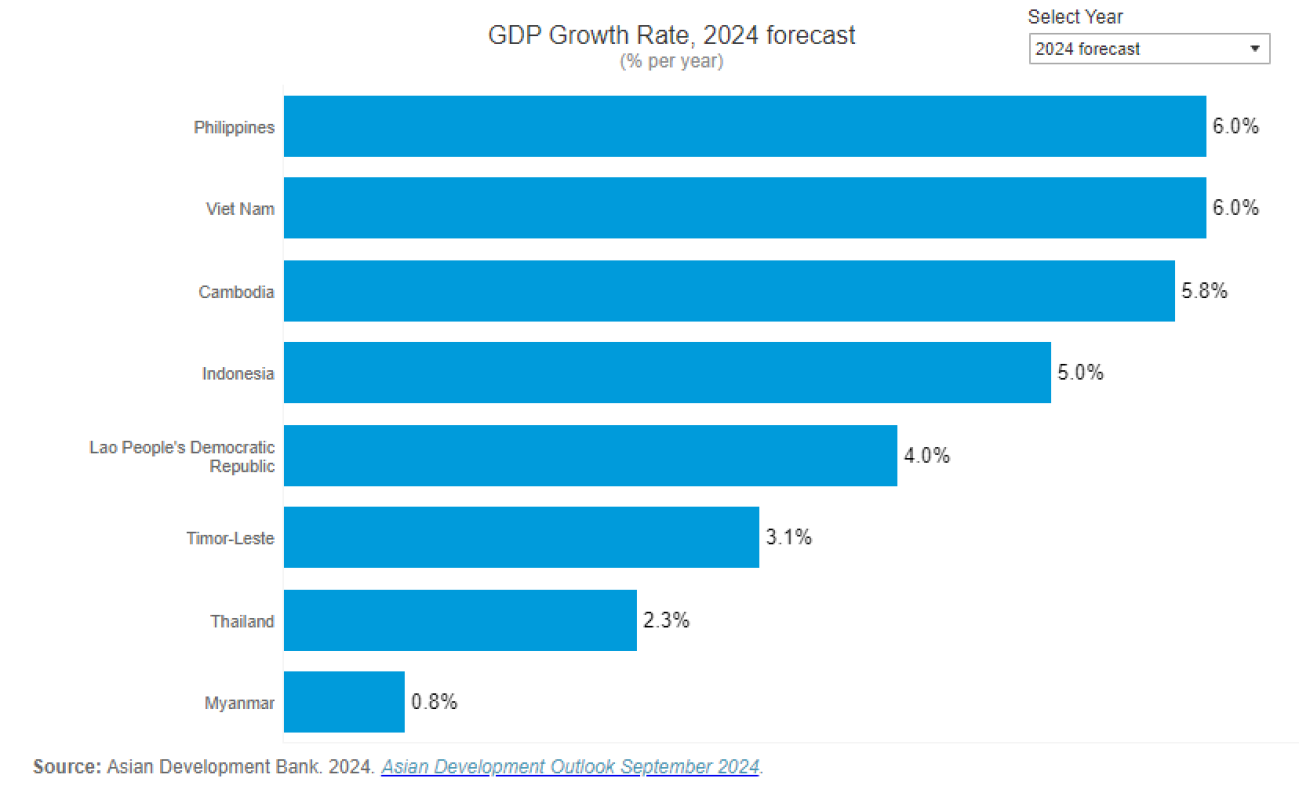How terrorist acts hold back Myanmar's progress

711

Tin Zar Lynn (NP News) - Oct 23
Contemporary terrorists aim to inflict significant damage on society to compel its government to meet their demands. This damage can manifest as both human casualties and economic losses. Such impacts reveal a government's failure to safeguard its citizens and assets, leading to a decline in public trust and governmental legitimacy. In the short term, terrorism can hinder economic growth through various mechanisms.
Destruction of key public infrastructure by terrorists
In the past three years, the destruction of public infrastructure in Myanmar has reached alarming levels, severely affecting transportation, telecommunications, and essential services.
Since 2021, nearly 1,500 roads, bridges, and toll gates have been destroyed as a result of armed conflict, with incidents of landmine explosions primarily carried out by PDF terrorists and ethnic armed forces affecting public infrastructure. This destruction of state-owned roads and bridges has created significant mobility challenges for the general public. Additionally, the reconstruction of these vital transportation links demands substantial financial resources and time.
From February 2021 onward, hundreds of telecom towers have been targeted by terrorists. These groups consistently seek to undermine community development and stability by attacking these structures with acts of arson and explosives.
Since February 2021, fewer than a hundred power line towers have been destroyed, along with the demolition of some power stations by terrorists. This destruction has significantly affected the electricity supply, leaving many communities without reliable access to power and disrupting essential services.
Healthcare and educational infrastructure have also suffered significant destruction due to terrorist actions. Hospitals and clinics have been targeted, leading to casualties and a loss of vital medical services for affected communities. Additionally, schools and educational facilities have been damaged or destroyed, disrupting the education of countless children and jeopardizing their future opportunities. This widespread devastation not only threatens the immediate health and well-being of communities but also undermines long-term development and stability, as access to essential services becomes increasingly uncertain.
Conflict and economic stagnation
Myanmar's development has slowed significantly due to ongoing armed conflict, creating a climate of instability and insecurity. The destruction of vital infrastructure has hindered access to essential services and disrupted economic activities. Additionally, the conflict has led to the displacement of communities and a decline in investment, further stalling progress in key sectors. Resources are increasingly diverted to address immediate security concerns, neglecting long-term development initiatives and perpetuating a cycle of poverty that undermines the nation's growth prospects.
Since 2021, Myanmar has lagged behind its ASEAN neighbors in development due to escalating conflict and political instability. While countries like Thailand have made strides in economic growth and infrastructure, Myanmar faces severe setbacks that deter foreign investment and hamper trade, leading to a stagnant economy and rising poverty rates. The ongoing conflict disrupts education and healthcare, deepening disparities with regional peers and severely compromising Myanmar's potential for growth within the ASEAN community.
In contrast, Thailand has demonstrated economic resilience despite its political challenges. The strong tourism sector has rebounded, attracting millions of visitors and boosting revenue. This stability can be partly attributed to the absence of significant terrorist activity, which fosters a secure environment for domestic and international economic development. As a result, ongoing infrastructure projects have solidified Thailand's position as a resilient and growing economy in the region.
Unbalanced perspective
With the economy of Myanmar at a near standstill, the population suffers from insecurity and a dire need for basic infrastructure in telecoms and energy. Many citizens direct their frustration towards the government, blaming it for mismanagement and an inability to restore these vital services. Most of the blame does not take into consideration a proper appreciation of terrorist acts as the major exacerbating factor to this scenario. While armed groups are the real perpetrators of violence, some individuals within communities even express support for their actions, complicating the narrative further.
Likewise, some international actors seem to focus on the failures of the government, not a word of condemnation against such terrorist groups that bear greater responsibility for most of the destruction. This one-sided perspective can hinder a comprehensive understanding of the crisis in Myanmar. For any useful discussions and productive solutions, it is important that both domestic and international observers see the situation in a more balanced perspective, considering multi-dimensional problems presented by the effects of terrorism on the lives of ordinary citizens.
Ultimately, Myanmar's protracted conflict and instability have drastically stunted its development. As public frustration mounts regarding to it, many citizens unfairly direct their anger at the government, overlooking the critical role that terrorist groups play in perpetuating violence and instability. This misunderstanding is further compounded by a lack of balanced international perspectives, which often ignore the complexities of the situation. For Myanmar to reclaim its path toward development and stability, it is essential that both domestic and international stakeholders acknowledge the realities of terrorism and its detrimental effects on everyday life.
Only through a comprehensive understanding and collaborative efforts can Myanmar hope to break the cycle of poverty and insecurity, paving the way for a brighter future for its people.